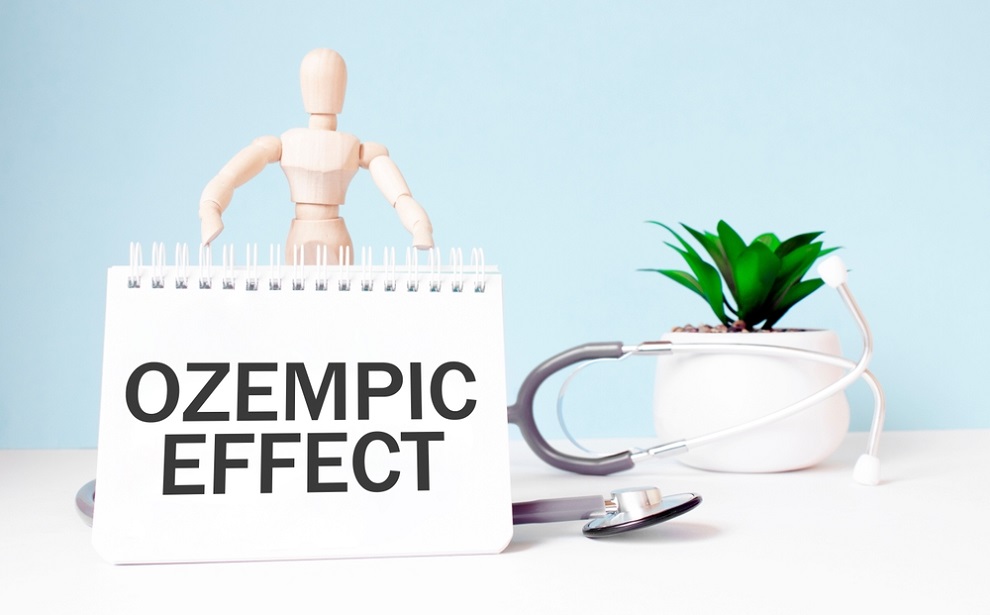Artificial sweeteners are everywhere these days, which raises an important question: do artificial sweeteners lower testosterone?
We often don't think twice before grabbing a diet soda or sugar-free snack. After all, artificial sweeteners help cut calories without giving up on sweetness.
But have you ever wondered what artificial sweeteners do to your hormones? Some research suggests they might lower serum testosterone levels, which isn't great news for men's health. These sweeteners are found in everything from diet drinks to protein powders. While they're marketed as a healthier alternative to sugar, their effects on hormones remain unclear. If they interfere with testosterone, they could be impacting far more than just your calorie count.
This article explores whether artificial sweeteners lower testosterone and the potential link between them.

Sex Hormones and Male Reproductive System
Testosterone is crucial for the functioning of the male reproductive system. The male reproductive system depends on a network of hormones working together.
Testosterone interacts with other reproductive hormones, including luteinizing hormone (LH) and follicle-stimulating hormone (FSH), to maintain reproductive function. This male hormone is produced primarily in the testicular tissue by Leydig cells. These cells convert cholesterol into serum testosterone, ensuring proper hormone balance.
It impacts various functions, including sperm count, libido, and overall reproductive health. In sperm production, these sex hormones support the development and maturation of sperm cells. It regulates male reproductive parameters such as count, motility, and morphology, which are essential components for fertility.
However, low testosterone levels can negatively impact these factors, causing reproductive challenges. Besides fertility, testosterone affects sex drive and overall well-being. Balanced levels contribute to healthy libido and energy levels. When testosterone drops, men may experience reduced sexual desire, fatigue, and mood changes.
What Are Artificial Sweeteners?
Artificial sweeteners are used in diet beverages and processed foods. Common types include aspartame, sucralose, saccharin, and stevia.
These sugar substitutes provide sweetness without the added calories of regular sugar. Many diet sodas, sugar-free snacks, and low-calorie desserts contain artificial sweeteners. These sweeteners enhance flavor while reducing calories, making them popular in body weight management products.
The World Health Organization (WHO) recommends limiting free sugar consumption to less than 10% of total energy intake. Reducing it further to below 5% may offer additional health benefits. While artificial sweeteners can lower sugar intake, moderation is still important to avoid potential negative effects.
Do Artificial Sweeteners Lower Testosterone?
Artificial sweeteners influence hormone levels by affecting insulin response, reproductive hormones, and metabolic regulation.
These sugar substitutes alter how the body processes glucose, causing imbalances in insulin and cortisol. Frequent sweetener consumption can contribute to metabolic disruptions that affect overall hormonal levels stability. Reproductive hormones, including sex hormones and follicle-stimulating hormone (FSH), are essential in fertility and reproductive health.
Some artificial sweeteners have been shown to interfere with estrogen and testosterone levels, potentially impacting menstrual cycles and sperm quality. These changes influence reproductive function in both men and women. Furthermore, synthetic hormones in certain artificial sweeteners can alter biochemical status by affecting gut hormones that regulate appetite and digestion.
Changes in these hormone levels contribute to weight gain, increased cravings, and shifts in energy metabolism.
Mechanisms of Potential Testosterone Suppression
Oxidative stress parameters greatly affect the male reproductive system's function. Too much oxidative stress can harm the Leydig cells that make testosterone.
Reactive oxygen species (ROS) are molecules that the body naturally produces. In small amounts, they regulate cell function. But when ROS levels get too high, they damage testicular tissue and disrupt hormone production. Research shows that men with high oxidative stress experience a 15-20% drop in testosterone levels.
Lipid peroxidation adds to the problem by damaging the protective membranes of cells in the testicular tissue. This makes Leydig cells especially vulnerable. When these cells lose function, the body struggles to maintain healthy testosterone levels.
Inflammation also affects serum testosterone production. Oxidative stress triggers the release of cytokines like TNF-α and IL-6, which interfere with hormone production. Over time, this inflammation damages testicular tissue and makes it harder for the body to regulate testosterone.
Are All Artificial Sweeteners the Same?
Not all artificial sweeteners affect the body in the same way. Aspartame, one of the most widely used sweeteners, influences hormone levels based on the amount consumed.
Low doses do not cause major hormonal shifts, but high doses have been linked to a significantly decreased free testosterone which can affect metabolism and reproductive health. The body responds differently to artificial and natural alternatives. Some natural alternatives like stevia and monk fruit do not appear to interfere with hormone balance the way synthetic sweeteners like aspartame can.
Other options, like stevia and monk fruit, do not appear to interfere with hormone balance the way some synthetic sweeteners do.
Other Lifestyle Factors That Influence Testosterone
Artificial sweeteners are often criticized for their potential impact on plasma testosterone, but other lifestyle choices have a much bigger effect. What you eat, how much you weigh, and how well your nervous system functions affect hormone levels.
Dietary Patterns and Calorie Intake
A well-balanced diet supports testosterone production and overall hormonal health. Foods rich in nutrients supply the essential vitamins and minerals for hormone synthesis.
Diet plans that are too restrictive or lack variety can also lead to deficiencies, affecting testosterone levels. The calorie count also impacts the overall health. Eating too little can lower hormone production, while excessive calories can lead to weight gain, negatively impacting testosterone.
Body Fat and Body Weight Management
Excess body fat contributes to lower testosterone levels. Fat cells convert testosterone into estrogen, reducing the amount available in the bloodstream.
Maintaining a healthy weight is necessary to support hormonal balance and reproductive health. Some ways to reduce body weight include strength training and a protein-rich diet, which preserve lean muscle mass while supporting testosterone production.
Central Nervous System Health and Male Fertility
The central nervous system takes on an active role in hormone regulation. Lack of sleep, stress, and poor mental health can interfere with signals that control testosterone production.
Chronic stress elevates cortisol levels, which suppress testosterone. Regular exercise, quality sleep, and relaxation techniques maintain nervous system function and support male fertility.
A Holistic Approach to Hormone Health.
Diet, weight, and nervous system health also have a far greater influence. A well-rounded approach towards healthy testosterone level and overall well-being includes proper nutrition, body weight management, and stress reduction.
Impact of Artificial Sweeteners on Metabolic and Cardiovascular Health
Even though artificial sweeteners seem like a better alternative to sugar, they can adversely affect metabolism and heart health.
While they help lower calories, they also influence body weight, fat storage, and hormone balance in ways that are not always beneficial. Artificial sweeteners contain few to no calories, which makes them appealing for weight management. They reduce body weight by lowering the overall calorie count.
However, in some cases, they also contribute to weight gain by altering hunger signals and increasing cravings for processed foods. How artificial sweeteners interact with the brain's reward system can influence appetite and food choices.
Metabolic syndrome raises the risk of heart disease and diabetes, and excess body fat worsens this condition. Artificial sweeteners contribute to this issue by altering gut bacteria, which leads to increased fat storage and insulin resistance. These metabolic changes disrupt the body's ability to regulate blood sugar, further fueling the progression of metabolic syndrome.
The nervous system regulates hormone production and metabolic function. Artificial sweeteners affect neurotransmitter activity, which may influence appetite and stress responses. However, it can also trigger an inflammatory cytokine response, affecting overall hormonal balance. Chronic inflammation interferes with metabolism and increases the risk of obesity and insulin resistance.
Hormonal levels disruption from artificial sweeteners may contribute to cardiovascular disease. Insulin resistance, inflammation, and metabolic imbalance all impact heart health. Some research links long-term artificial sweetener use to a higher risk of high blood pressure and vascular dysfunction.

Scientific Studies on Artificial Sweeteners and Testosterone
Randomized controlled trials have investigated the effects of artificial sweeteners, particularly aspartame, on testosterone levels.
Animal studies, especially those involving Wistar albino and diet-induced obese male rats, have provided insights into potential hormonal changes associated with aspartame consumption. In one study, Wistar albino rats received aspartame at a dose of 40 mg/kg body weight per day, aligning with the European Food Safety Authority's recommendations.
Over 90 days, researchers observed significant alterations in biochemical indices, including a significant decrease in enzymatic and non-enzymatic antioxidant levels. These changes compared to a control group suggest that aspartame consumption may induce oxidative stress, potentially affecting hormonal balance, including reproductive tissues.
Another study examined the impact of low-dose aspartame consumption on diet-induced obese rats. Male Sprague-Dawley rats were randomized into standard chow (a balanced lab diet used as a control in animal studies) or high-fat diets and divided into water control or low-dose aspartame groups (5-7 mg/kg/day) for eight weeks.
The aspartame treatment groups exhibited alterations in gut microbiota-host metabolic interactions, which could influence metabolic health and hormonal regulation, including testosterone. These randomized controlled trials indicate that aspartame consumption may affect metabolic processes and hormonal balance, even at low doses.
However, translating these results from animal models to humans requires caution. While these studies provide valuable insights, further research, especially high-quality human trials, is required to fully understand the implications of aspartame consumption on testosterone levels in humans (Toews et al., BMJ, 2019).
Should You Avoid Artificial Sweeteners?
Artificial sweeteners are widely used as sugar substitutes, but their impact on health is not the same for everyone. While they help reduce calories count, their effects on reproductive health, particularly sperm quality, raise concerns.
Research suggests that long-term aspartame administration can reduce sperm motility and lower sperm count. Since sperm quality is directly linked to reproductive success, any disruption in movement or concentration can impact male fertility.
Since sperm DNA integrity is a key factor in healthy reproduction, artificial sweeteners can contribute to sperm DNA damage and reduce sperm viability. Oxidative stress is one possible reason, as artificial sweeteners may trigger increased free radicals, which can harm sperm count. Reproductive toxicity is another concern, as any exposure that affects sperm structure or function may influence male fertility over time.
One way to support reproductive health is to manage sugar consumption without relying on artificial sweeteners. A balanced diet rich in whole foods, lean proteins, and healthy fats maintains hormonal balance. Hydration, regular exercise, and adequate sleep also affect overall well-being. Small adjustments in daily habits can make a difference in long-term health outcomes.
Testosterone levels influence sperm count and overall reproductive function. Some men turn to testosterone supplements, such as Male Excel's Cypionate injection and Lipoderm cream, to maintain hormone balance. These treatments can support energy levels, muscle mass, and libido. However, testosterone therapy should always be approached with medical supervision to ensure proper dosage and avoid unwanted side effects.
Conclusion: Do Artificial Sweeteners Lower Testosterone?
Testosterone levels are influenced by more than just age. They're shaped by your diet, lifestyle habits, and even your intake of artificial sweeteners. As mentioned earlier, some research suggests that high-dose aspartame may reduce testosterone and impair sperm quality, affecting both viability and motility.
While more studies are needed to confirm these effects in humans, it's worth paying attention to how artificial sweeteners fit into your routine. Men who want to protect their hormone health should focus on whole foods, manage stress, and maintain a healthy weight.
Limiting sweeteners, getting regular exercise, prioritizing sleep, and supporting your metabolism all contribute to balanced testosterone levels. For those who need additional support, Male Excel offers medically supervised testosterone treatments tailored to your needs.
Small, consistent changes can make a powerful difference. Protect your energy, strength, and reproductive health by making informed choices, starting today.
Ready to take control of your hormone health? Male Excel is here with proven, personalized treatments backed by real medical expertise.

Get TRT Online
Optimize Your Hormones





